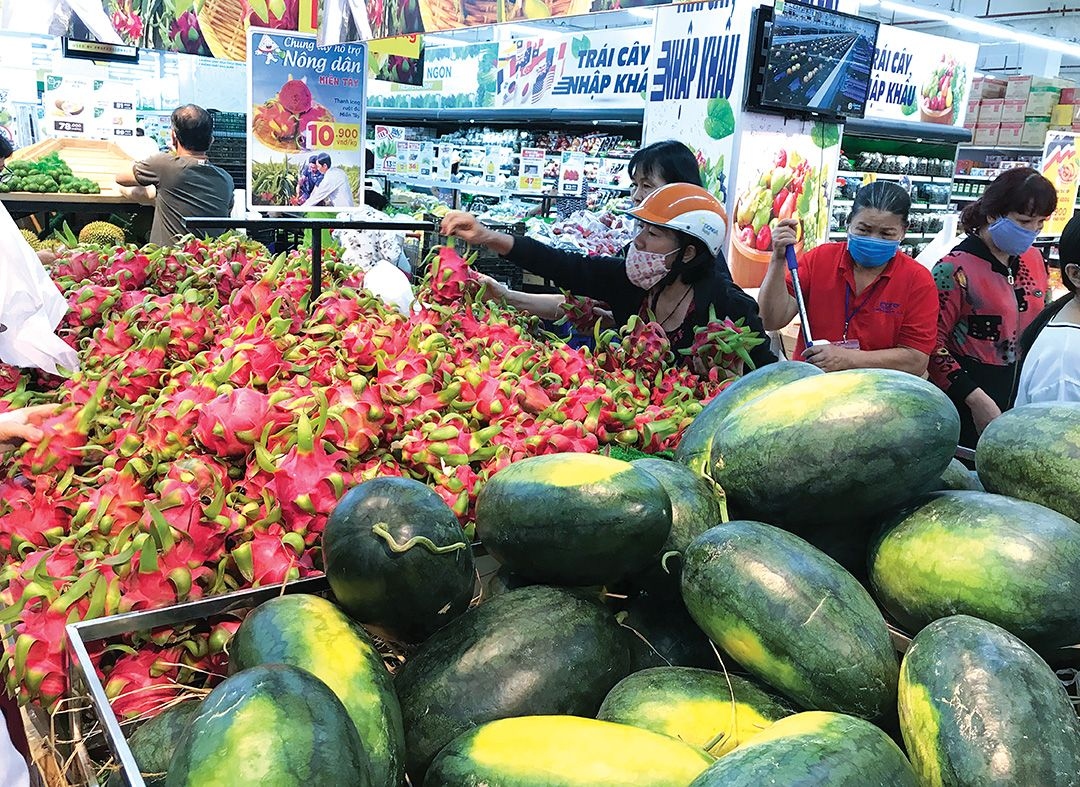Quality improvement for food exports to China under discussion
VOV.VN - The Investment and Trade Promotion Centre of Ho Chi Minh City (ITPC) and the Vietnamese Trade Office in China on June 16 co-hosted a seminar on improving the quality of food products exported to the China, the biggest export market of Vietnam.
ITPC Director Tran Phu Lu stated that Vietnamese major exports to the market are processing, manufacturing, agro-fishery goods, adding that the nations have secured a host of bilateral and multilateral cooperation pacts, including the ASEAN–China Free Trade Area (ACFTA) and the Regional Comprehensive Economic Partnership (RCEP).
According to Luong Van Tai, a trade attaché from the office, Vietnam currently ranks 10th among the countries exporting farm produce to China, with last year’s turnover from such shipments to the market exceeding US$6 billion but only accounting for about 2.6% of China's total agricultural import value.
Vietnam is also China’s 3rd biggest exporter of fruit and vegetables, following Thailand and Chile, Tai said, noting that the market’s demand for tropical fruits is large and grow annually.
He advised Vietnamese exporters to carefully study requirements from China, which is lifting its tariff barriers but tightening its technical specifications, food safety and quarantine standards and using anti-dumping measures frequently.
Sharing his export experience relating to the Chinese market, Chairman of 365 Group Dinh Vinh Cuong said experts consider China the largest destination for Vietnamese agricultural products given global inflation, due to its surging demand, close geographical proximity, and lower logistics costs and risks compared to other markets.
Vietnam has so far officially exported 13 key agricultural products to China. In order to turn the exports into an opportunity to increase market share, Cuong proposing developing a strategic plan for the industry, as well as building brands and large-scale specialised production and concentrated farming areas based on market signals.
It is also essential to outline a logistics strategy and establish agricultural product storage facilities in border localities, he added.

